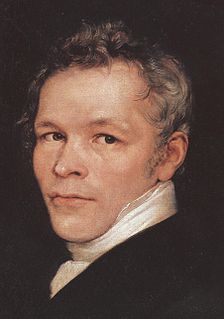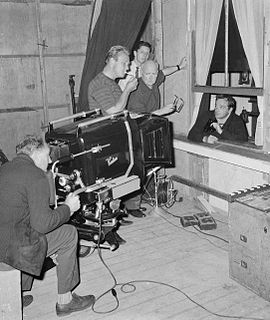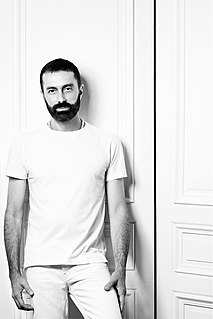A Quote by Karl Friedrich Schinkel
Schinkel was not arbitrary in his use of historical modes but rather eclectic in the best sense of the word. He could search the past for its conspicuous successes using them both freely and discursively as the basis for a contemporary architecture.
Related Quotes
Above all, documentary must reflect the problems and realities of the present. It cannot regret the past; it is dangerous to prophesy the future. It can, and does, draw on the past in its use of existing heritages but it only does so to give point to a modern argument. In no sense is documentary a historical reconstruction and attempts to make it so are destined to failure. Rather it is contemporary fact and event expressed in relation to human associations.
Successful people maintain a positive focus in life no matter what is going on around them. They stay focused on their past successes rather than their past failures, and on the next action steps they need to take to get them closer to the fulfillment of their goals rather than all the other distractions that life presents to them.
When I came back to the United States, I decided that if you could use propaganda for war, you could certainly use it for peace. And "propaganda" got to be a bad word because of the Germans using it, so what I did was to try and find some other words so we found the word "councelor of public relations".
It is not the literal past that rules us, save, possibly, in a biological sense. It is images of the past. Each new historical era mirrors itself in the picture and active mythology of its past or of a past borrowed from other cultures. It tests its sense of identity, of regress or new achievement against that past.
And I have yet to find one single individual who has attained conspicuous success in bringing down enemy aeroplanes who can be said to be spoiled either by his successes or by the generous congratulations of his comrades. If he were capable of being spoiled he would not have had the character to have won continuous victories, for the smallest amount of vanity is fatal in aeroplane fighting. Self-distrust rather is the quality to which many a pilot owes his protracted existence.
If China stood on an equal basis with other nations, she could compete freely with them in the economic field and be able to hold her own without failure. But as soon as foreign nations use political power as a shield for their economic designs, then China is at a loss how to resist or to compete successfully with them.
I had noticed that many of these successful people, historical and contemporary, shared certain common traits. They had a way of thinking that was exceptionally fluid; they could adapt to almost any circumstance; when confronted with problems, they could look at them from novel perspectives and solve them.
I like things that are kind of eclectic, when one thing doesn't go with another. That's why I love Rome. The town itself is that way. It's where Fascist architecture meets classic Renaissance, where the ancient bangs up against the contemporary. It has a touch of everything. That's my style, and that's what my work is about.







































